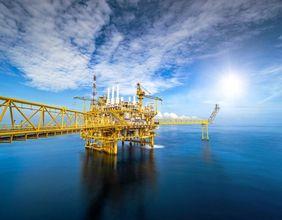Oil to open higher as US strikes on Iran boost supply risk premium

Global oil benchmark Brent crude could gain $3 to $5 per barrel when markets open, SEB analyst Ole Hvalbye said in a note. Brent settled at $77.01 a barrel on Friday and U.S. West Texas Intermediate at $73.84. "An oil price jump is expected," said Jorge Leon, head of geopolitical analysis at Rystad and a former OPEC official. "Even in the absence of immediate retaliation, markets are likely to price in a higher geopolitical risk premium." Crude had settled down on Friday after the U.S.
imposed fresh Iran-related sanctions, including on two entities based in Hong Kong, and counter-terrorism-related sanctions, according to a notice posted to the U.S. Treasury Department website. Brent has risen 11% while WTI has gained around 10% since the conflict began on June 13 with Israel targeting Iran’s nuclear sites and Iranian missiles hitting buildings in Tel Aviv. Currently stable supply conditions and the availability of spare production capacity among other OPEC members have limited oil’s gains. Risk premiums have typically faded when no supply disruptions occurred, said Giovanni Staunovo, analyst at UBS.
"The direction of oil prices from here will depend on whether there are supply disruptions - which would likely result in higher prices - or if there is a de-escalation in the conflict, resulting in a fading risk premium," he said. A senior Iranian lawmaker on June 19 said that the country could shut the Strait of Hormuz as a way of hitting back against its enemies, though a second member of parliament said this would only happen if Tehran’s vital interests were endangered. About a fifth of the world’s total oil consumption passes through the strait. SEB said that any closure of the strait or spillover into other regional producers would "significantly lift" oil prices, but said they saw this scenario as a tail risk rather than a base case given China’s reliance on Gulf crude. Ajay Parmar, oil and energy transition analytics director at consultancy ICIS, said it was unlikely Iran would be able to enforce a blockage of the strait for too long.
"Most of Iran’s oil exports to China pass through this strait and Trump is unlikely to tolerate the inevitable subsequent oil price spike for too long - the diplomatic pressure from the world’s two largest economies would also be significant," he said.




